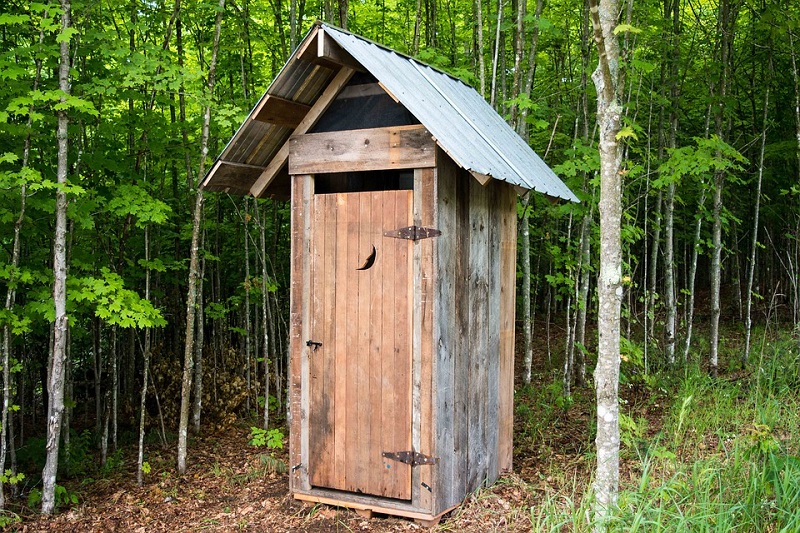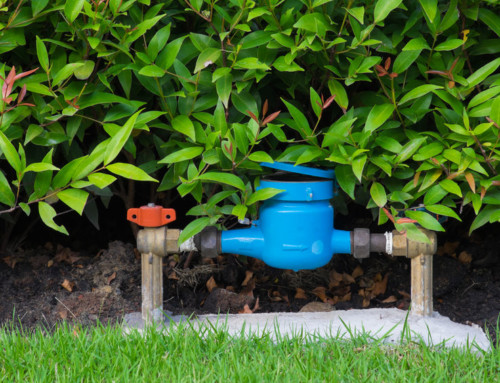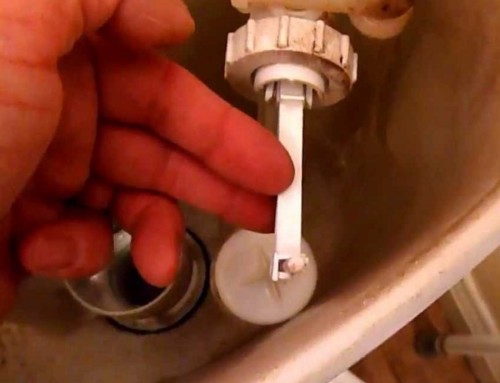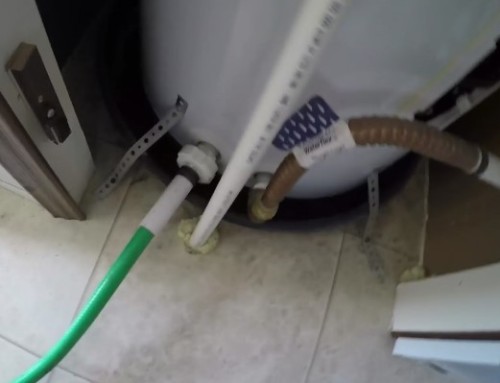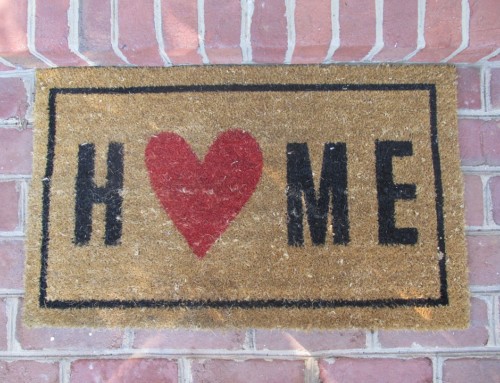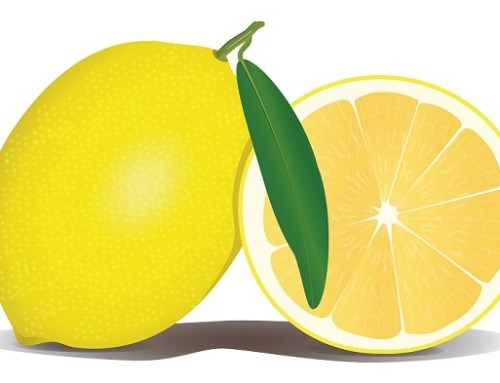Whilst Aussies have a long history of outdoor dunnies, it’s rare to find anyone in Australia still using these old systems; most of us have lovely, sleek and modern indoor toilets. It’s also fair to say that most of us take our indoor toilets for granted!
Some of us are even installing the latest high tech loos that warm and dry our behinds, flush automatically, heat the water, play tunes and even clean themselves. In fact, toilets are practically becoming an art form with a plethora of designer toilets available on the market, suitable for the most discerning tastes.
Not everyone has access to indoor toilets
According to Water Aid, less than a quarter of Russian households have a centralised sewage system (where their toilets empty into a publicly owned treatment system). Of these households, less than 17% are connected to pit toilets (equivalent to Aussie outdoor dunnies), whilst the remainder aren’t connected to any type of sewage system at all.
When you focus just on Rural Russia, more than 60% of people don’t have indoor toilets with just under 50% using outdoor dunnies and the rest having no recognisable sewage system. Water Aid found that Russia has the worst access to hygienic toilets in the world (27.8%), followed by Moldova (23.6%), Romania (20.9%), Bulgaria (14.0%) and Latvia (12.2%). These results are fairly surprising because these five countries are considered to be ‘developed countries’.
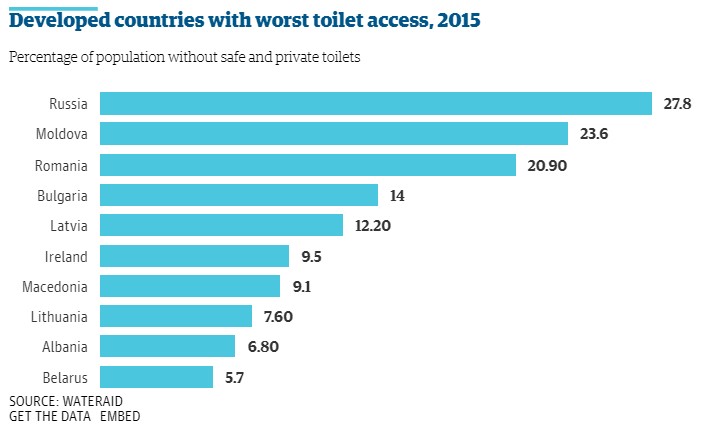
It gets worse in the South Sudan where more than 90% of people don’t have access to toilets that meet basic hygiene standards (a system that directs waste to a pit, septic tank or sewer, including composting toilets). Water Aid found that the top 5 countries that fit this bill are South Sudan (93.3%), Niger (89.1%), Togo (88.4%), Madagascar (88.0) and Chad (87.9%).
Why does a lack of safe toilets matter?
When human waste isn’t whisked away safely, it can lead to contaminated water and food, leading to a host of diseases, the least of which is diarrhoea. Countries that are in conflict or suffer instability in their leadership often have poor access to toilets. On the other hand, it doesn’t take a huge leap in economic growth and stability to provide adequate sanitation.
A case in note is Nepal where despite slow economic growth, they have made huge inroads in providing hygienic sanitation for its population. Compare this result with Nigeria whose sanitation has actually reduced, despite increased economic growth. Apparently, providing hygienic sanitation for a population comes down to the political will of the government, rather than its economy.
In 2015, the United Nations promised access to safe, private toilets to everyone by 2030, but without the political will and government resources, this might seem like an unachievable dream. How lucky are we in Australia!
If you need new toilets plumbed or are experiencing problems with your toilets or sewage pipes, call Red Dog Pluming on 0418 532 134 today.
